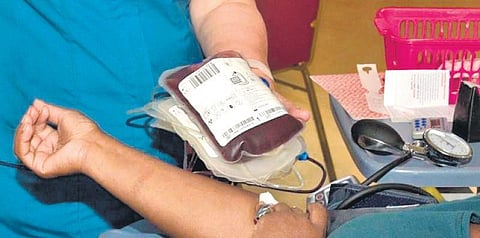

HYDERABAD: In a world where division and discord seem to dominate the headlines, there are moments that remind us of the inherent kindness and compassion that still exist among us. World Blood Donor Day, celebrated on June 14 each year, provides an occasion for the people of Hyderabad to come together and honour the selflessness of blood donors.
CE seeking valuable insights into the intricacies of this noble cause speaks to medical practitioners and NGOs, who are actively driving progress in the field of blood donation. Dr Ganesh Jaishetwar, Hematologist, Hemato-Oncologist & Bone Marrow Transplant Physician at Yashoda Hospitals, says, “Blood donation is a life-saving gift of life that somebody can offer without getting affected in any way.
Every two seconds, somebody in our country needs blood or a blood product as a life-saving measure in the hospital. So the demand is huge. “Blood” is a broad term; it contains different blood products. One blood donation can save three lives because we separate the blood into three components: red blood cells, platelets, and plasma. Red blood cells are required for people with low hemoglobin; that is one component. Other components include plasma, which is a nutrient carrier in our body, and platelets, which help in blood clotting.”
On asking about who can be a potential blood donor, Dr Ganesh said, “Any healthy individual above the age of 18 can donate approximately 350 to 400 ml of blood.” Dr Chandrakant Agarwal, President, Thalassemia and Sickle Cell Society (TSCS), says, “We have registered more than 3,720 patients with us. Our children depend solely on blood for survival.
Without regular blood transfusions every 15 to 20 days, they cannot sustain their lives. Blood is a lifelong requirement for them.” Thalassemia and Sickle Cell Society is a non-profit, non-governmental organisation that provides free consultation, free blood, and transfusion facilities to Thalassemia and Sickle Cell Anaemia affected children.
On asking about how NGOs meet such critical blood requirements, Dr Chandrakant said, “We have more than 400 blood donation organisers who organise blood donation camps for us, like different MNCs, colleges, temples, mosques, and colonies. Every one of them is registered with us; whenever we require blood, we call them, and request them. We have organised about 2,870 blood donation camps, with the grace of God and our excellent team.”